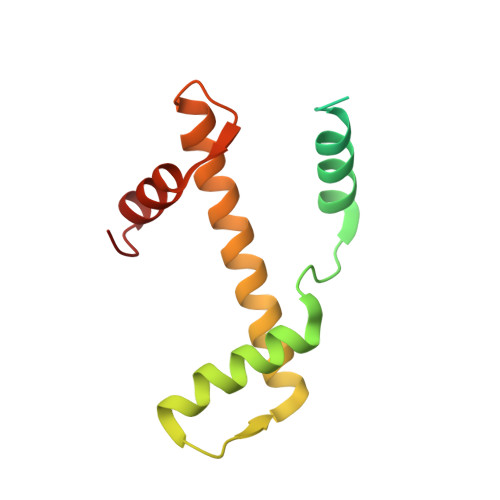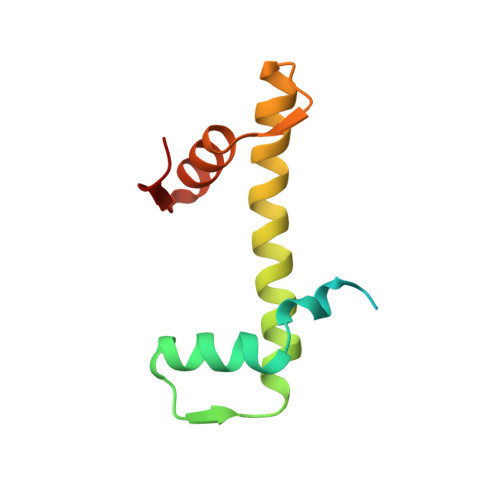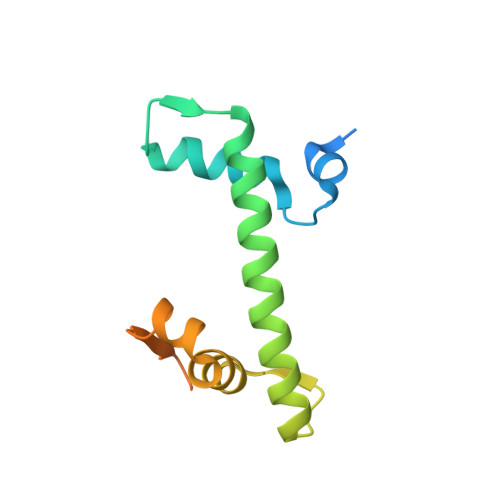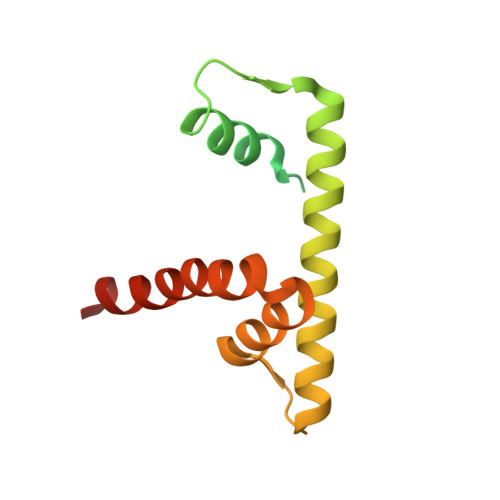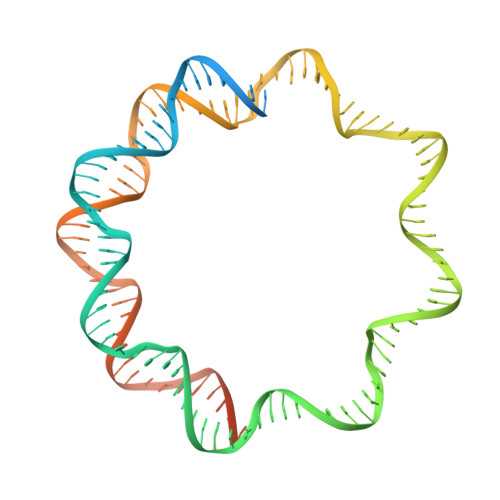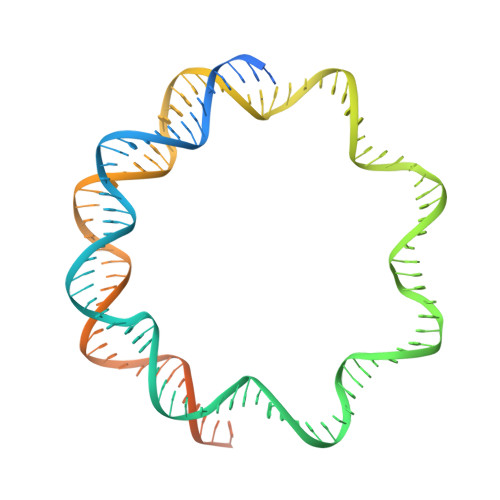Testis-specific H2B.W1 disrupts nucleosome integrity by reducing DNA-histone interactions.
Ding, D., Pang, M.Y.H., Deng, M., Nguyen, T.T., Liu, Y., Sun, X., Xu, Z., Zhang, Y., Zhai, Y., Yan, Y., Ishibashi, T.(2024) Nucleic Acids Res 52: 11612-11625
- PubMed: 39329259
- DOI: https://doi.org/10.1093/nar/gkae825
- Primary Citation of Related Structures:
8JBX, 8JCC, 8JCD - PubMed Abstract:
Multiple testis-specific histone variants are involved in the dynamic chromatin transitions during spermatogenesis. H2B.W1 (previously called H2BFWT) is an H2B variant specific to primate testis with hitherto unclear functions, although its single-nucleotide polymorphisms (SNPs) are closely associated with male non-obstructive infertility. Here, we found that H2B.W1 is only expressed in the mid-late spermatogonia stages, and H2B.W1 nucleosomes are defined by a more flexible structure originating from weakened interactions between histones and DNA. Furthermore, one of its SNPs, H2B.W1-H100R, which is associated with infertility, further destabilizes the nucleosomes and increases the nucleosome unwrapping rate by interfering with the R100 and H4 K91/R92 interaction. Our results suggest that destabilizing H2B.W1 containing nucleosomes might change the chromatin structure of spermatogonia, and that H2B.W1-H100R enhances the nucleosome-destabilizing effects, leading to infertility.
- Division of Life Science, The Hong Kong University of Science and Technology, Clear Water Bay, NT, HKSAR, China.
Organizational Affiliation:








